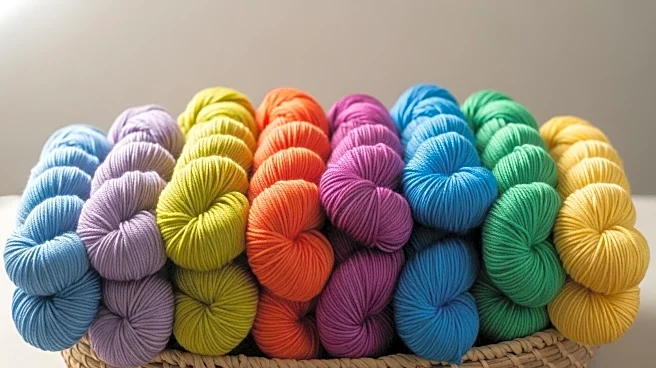What is the story about?
What's Happening?
President Trump has repealed the de minimis exemption, which previously allowed goods valued under $800 to enter the U.S. duty-free. This change has led to increased tariffs on imported goods, affecting yarn brands and crafters. The new tariffs range from 10 to 50 percent, depending on the country of origin, or a flat rate between $80 and $200. As a result, several European yarn brands have suspended shipments to the U.S., causing concerns among knitters and embroiderers who rely on these imports for their crafts. The uncertainty over how these charges will be collected has also prompted national postal services to pause deliveries to the U.S.
Why It's Important?
The repeal of the de minimis exemption is significant as it directly impacts the crafting community, particularly those who depend on imported yarns. The increased costs and limited availability of quality materials could lead to higher prices for consumers and potential business closures for yarn retailers. This change disproportionately affects lower-income communities, who now face higher tariff rates compared to wealthier areas. The crafting industry, which saw a resurgence during the pandemic, may experience a decline due to these new financial burdens.
What's Next?
Yarn brands are exploring alternative shipping methods to resume deliveries to the U.S., potentially increasing shipping costs for American buyers. Retailers and crafters are likely to face ongoing challenges with supply chain disruptions and price hikes. The crafting community may need to adapt by sourcing more American-made yarns, although this could be unsustainable due to limited domestic production. The broader implications of these tariffs may lead to increased advocacy for policy changes to support the crafting industry.
















